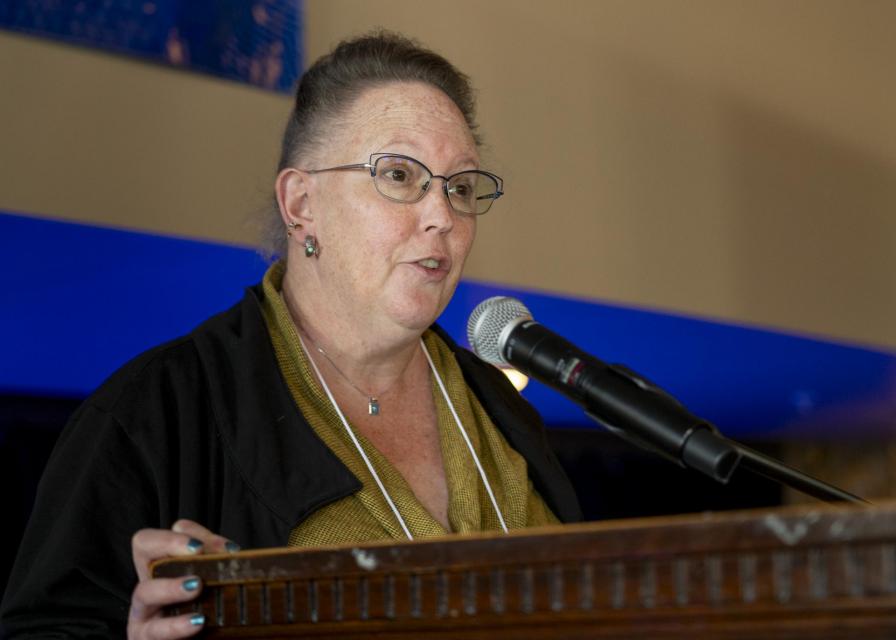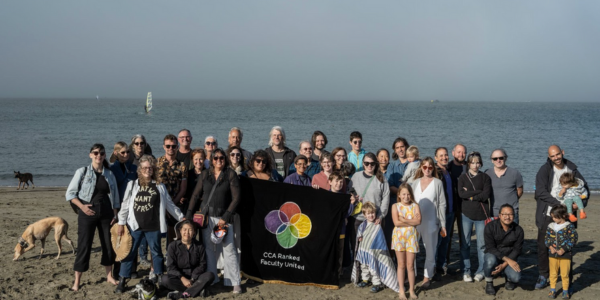Christina La Sala, an installation artist who teaches in the Individualized Studies Program at California College of the Arts, said she and her colleagues love the school, teaching and the students. But (sadly, not shocking for educators), they struggle to get by on their salaries.
Beyond that, faculty members are perplexed by how the relationship with the administration has become more adversarial in recent years, La Sala says. She thinks the structure at the college has become more corporate.
“There’s many more vice presidents and directors, and a lot of responsibility is being handed over to people who are not on the faculty,” La Sala said.
“Decisions are being made that profoundly affect our curriculum, our ability to do our jobs, and our ability to be artists.”
La Sala was a chair for 10 years and she says chairs used to have oversight of the budget for their departments. Those who work in areas like glass, ceramics, or sculpture, have foundries and shops, and they would hire their shop managers who they work closely with, but it’s not that way anymore.
“All of these things have shifted really profoundly,” she said. “Chairs no longer have any of that flexibility or authority.”
Like La Sala, Kim Anno, a painter, photographer, and filmmaker, who has taught in the Painting and Drawing Program at CCA for 27 years, says salaries are a problem. But for her, the administration’s attitude towards teachers is almost worse.
“I was led to it [the union] because the working conditions became untenable,” Anno said. “No one would be like a problem solver.”
Another big reason Anno and La Sala— and other faculty members — were driven to organize is their retirement, which was cut by a stunning 50 percent. Anno, who went to San Francisco State and the San Francisco Art Institute, worked in hotels during that time, and was a union member, so she thought of a union as a way to support their rights as workers at CCA.
She got in touch with the CFT and started talking with other teachers about unionizing.
Mia McIver met with the CCA group last summer, soon after she started her job as the Universities Council President.
“What really struck me was how unified they were, how determined they were, and how distressed they were about the lack of power and the lack of voice that they had on their campus,” she said. “I was very impressed at how really deeply educated they were about labor and collective bargaining already.”
Last fall, more than 90% of the college’s ranked faculty members, which includes chairs and associate chairs, signed union authorization cards. This past January they were recognized as a union.
McIver says the faculty members’ hard work at the beginning of the organizing process meant things going more smoothly in the later stages.
“They’re organizing in the private sector, which is very challenging,” she said. “What they did was build enough power to win voluntary recognition from their employer, and that is incredibly rare.”
The CCA faculty accomplished a lot in a short time, McIver says.
“There are still some issues to be worked out,” she said. “But once those get worked out, they’re going to be well on their way to bargaining their first contract.”


